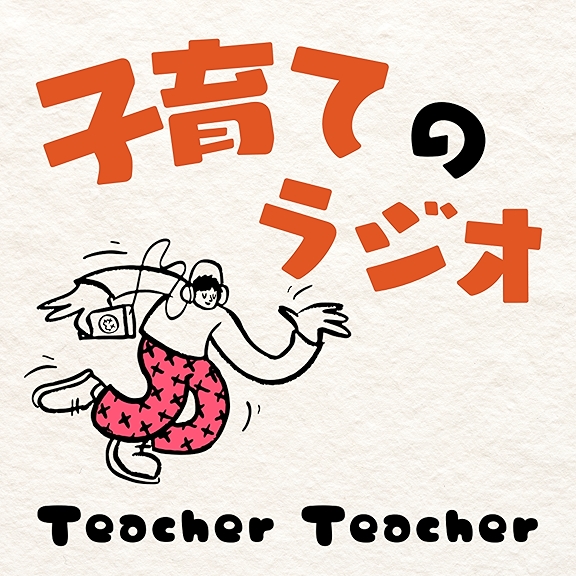
Today’s episode will be a solo episode, so no guest. I wanted to take the time to touch on a subject that sparks a lot of frustration in the autism community. What does autism look like? I often am told that my son doesn’t “look autistic”. Even though I know that most people are not intending to be insensitive, it still bothers me. Yes, my son is the most beautiful thing that I’ve ever laid eyes on, but his beauty is more than skin deep. Autism does not define him, and I have never let his autism diagnosis precede him. So how do you respond when someone says something like “your child doesn’t look autistic”?
I use this question as an educational platform; an opportunity to present information in a conversation. I usually say, “If you want to know what an autistic child looks like, look at your own child or grandchild. Look at the children who live next door to you and take a glimpse at every child you walk past on the street. These could very well be the faces of autism. There is no visible indication that a child is affected by this neurological disorder.”
Autism is the king of all tricksters. I know this to be true because there have been times when I took my son to the store or doctor’s office and received looks of confusion or frustration in response to his sometimes-odd behaviors. Unless I inform someone, no one has a clue that he is autistic.
From time to time, I find myself getting upset about the glares from individuals who would never think autism is the culprit for these odd behaviors. There have even been occasions when I’ve had to get a little confrontational with those brave souls who dared to make a rude comment or stare for just a little longer than necessary. But, after all of the annoyance and rude exchanges, autism still lingers. It seems to me the only thing left to do is educate rather than disassociate. I believe this is where acceptance and inclusion come into play.
So, what exactly is autism? A lot of people I’ve crossed paths with have no clue as to what this disorder is and are even quick to misconstrue the meaning of autistic with artistic.
Autism doesn’t have anything to do with the arts; our children are extremely talented, but artistic and autistic are two different things.
Autism is an illness that affects social and communication skills. Some Autistic children have a hard time playing with others and making friends and some are nonverbal. Many autistic children display behaviors that may include: repetitively pouring liquids from cup to cup, spinning around and not getting dizzy, not wanting to be touched or hugged, lining up toys and screaming for hours. Of course, every Autistic child is different. There are varying levels of this disorder and that’s why it is called a spectrum.
Some individuals on the low end of the spectrum are nonverbal and are only able to show what they want by taking others to it or bringing someone a picture. The fact that they can’t communicate is the reason for most of their severe meltdowns.
Imagine for a moment being frustrated, but not being able to express why. Imagine you have a toothache, but you’re not able tell anyone. Think how you would feel if you really wanted affection, but a simple stroke of your skin caused physical pain.
These are just a few of the things autism individuals must face and because of this, I have made a promise to my son and others on the autism spectrum to put up a good fight. To be their voice if they don’t yet have one. To be not only their advocate, but a part of every family’s support system.
Right now, no one expert has been able to confirm what causes autism, but one thing is certain: bad parenting IS NOT the cause of this impairment. Unfortunately, we still have some who are ready and willing to wave the idea around that a parent can inflict autism onto their child. There are a few people I know who are still quick to say that there is nothing wrong with autism individuals, but they only need to be disciplined. Although such an accusation hurts deeply, I now understand that it doesn’t matter who the person is or how well educated they may think they are on the subject of autism; no one can truly comprehend what it’s like to raise an autistic child unless they are raising one themselves.
When my son was diagnosed three years ago, I was hesitant to speak of his diagnosis. It wasn’t that I was embarrassed, but on the few occasions when I did reveal his autism diagnosis, I was inundated with sometimes hurtful questions like, “Oh, how many toothpicks can he count at one time, what musical instrument does he play, oh he’s like Einstein”. Too many questions, and not enough answers. Then I realized, by keeping silent on my son’s diagnosis, I was disassociating from our community. Think about it. Progress has never been made in history, without those voices that sparked tidal waves. That moved mountains. Autism is a part of my family’s life and it forever will be. A long time ago I accepted that my family doesn’t fit into an ordinary mold; we do what we can to get over every challenge that autism presents to us, and we find beauty amidst the chaos.
I laughed in the face of autism when my son started reading at an early age, when he was able to get a haircut without screaming, to play in the sand without hesitation. We have shown and proved that autism will not come in between our dreams of normalcy and happiness.
Still, there will forever be a battle to win with those who feel a disability is only a disability when it screams out at you from a wheelchair. There will always be one individual who thinks a good whipping is the only cure needed for an autistic child.
Sadly, for the millions of parents who know better, we can only continue to do what we do best: love and support our children. Nobody else will do it better. We are the keepers of disappointment when we find that medical insurance does not cover expensive and much needed therapy. We are the proactive and often angry parents questioning why sensory integration and assistive technology aren’t incorporated into our children’s individual education plan or (IEPs).
And some of those children are the ones you see in the grocery store shrieking at the top of their lungs or darting off nonstop at a moment’s notice. So please, don’t be quick to judge the parents. Looks are very deceiving. Take into account that it may not just be bad behavior; it may be autism.
In every situation, we must remind others there are behavioral strengths of children with autism, and those strengths can be expanded. Just like neurotypical individuals, those with autism have a wide range of talents. A child with autism may be able to play a song on the piano without sheet music, but will avoid interaction with peers. At school, perhaps the child’s piano-playing skills may be incorporated in the classroom to help increase communication with peers. For example, a teacher could make a game of “name that tune”, encourage turn-taking at the piano, have the child teach peers about the piano. Teachers could also make use of the vast knowledge a student with autism may have on a particular topic. For example, if a student is fixated on train routes, a teacher could have that student develop a presentation with peers regarding specific routes, draw a wall-size map of routes, and incorporate in lesson plans regarding transportation, communities or history. Any of these activities could be beneficial not only to the student with autism, but his or her peers as well.
Autism is what makes it difficult sometimes for my son to communicate with others, but this doesn’t mean that I can’t work with others to teach them how to communicate with him. Autism makes him sometimes unaware of social norms, and how to form relationships with peers. Autism is trading in soccer practice or piano lessons for speech therapy, occupational therapy, and ABA therapy. But autism also looks like the pure joy on his face when he is swimming, or snuggling with me. The confident smile he gets when he is brave enough to try something new. Autism in our family teaches us to celebrate and appreciate every single thing.
Autism is a diagnosis, and nothing more. As you may have heard, “It doesn’t come with a manual, but parents that never give up.” Just like I am instilling bravery and strength in my son, he is teaching me to be brave, strong, and courageous, too. He has taught me that even when I’m tired and feel like giving up, I can keep going. My son has taught me that there are many other ways of communication than simply just speaking. I knew my life had purpose before my son, but now I truly know what I’ve been put here to do. I am an autism parent, and I will never, ever give up, no matter what it takes.
Thanks so much for being a part of My Autism Tribe. For staying strong, and brave for your loved ones and your community, and for helping me teach others about the beautiful differences of autism. The next time someone asks you what autism looks like, I encourage you to take the opportunity to educate. Together, we are one voice made stronger. Keep up the great work, and I’ll see you next week!




















